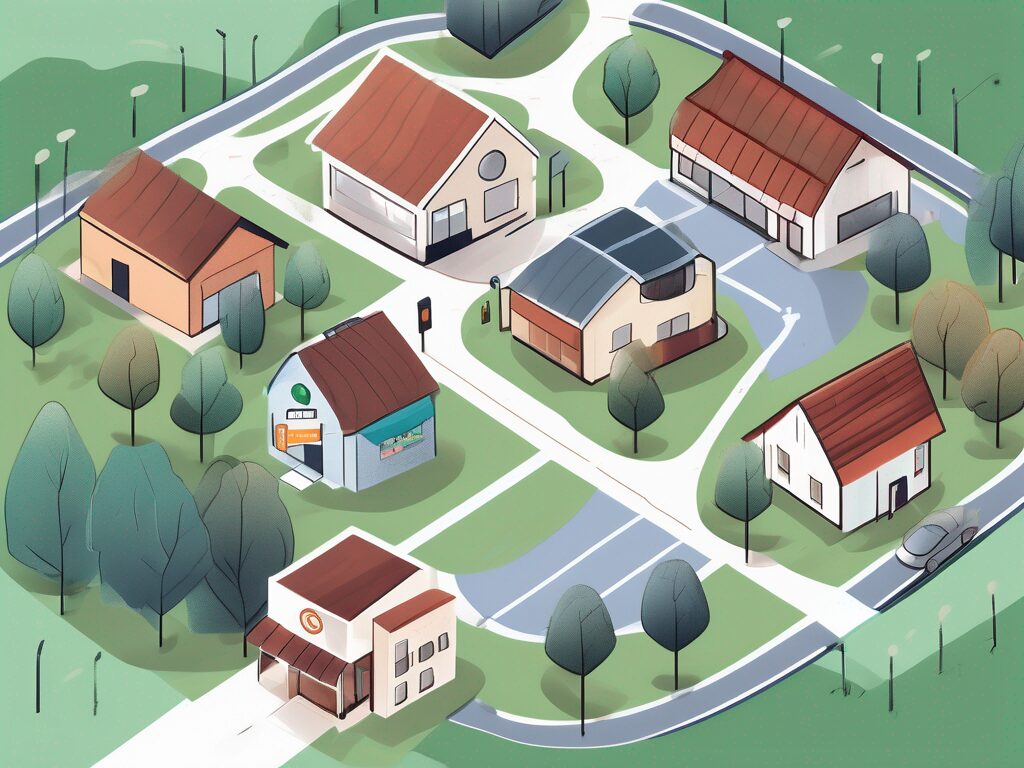When it comes to choosing a location, whether it’s for a home, a business, or even a holiday destination, convenience is a key factor that can’t be overlooked. It’s not just about being close to amenities or having a great view, it’s about how the location fits in with your lifestyle, your needs, and your goals. Let’s delve into the world of convenience and location considerations, exploring the different aspects that make a location convenient, and how these factors can influence your decision.
Understanding Convenience
Before we dive into the specifics, it’s important to understand what we mean by ‘convenience’. In the simplest terms, convenience refers to the ease with which you can accomplish your tasks or meet your needs. This could be anything from how close you are to the local supermarket, to how easily you can access public transport.
However, convenience isn’t a one-size-fits-all concept. What’s convenient for one person might not be for another. For example, if you’re a city-dweller who relies on public transport, living near a bus or train station would be highly convenient. But for someone who drives, proximity to a motorway might be more important.
Factors That Contribute to Convenience
There are several factors that contribute to the convenience of a location. Let’s take a closer look at some of these.
Proximity to Amenities
One of the most obvious factors is proximity to amenities. This includes things like shops, restaurants, and leisure facilities. If you’re a foodie who loves to eat out, living near a variety of restaurants might be a top priority. On the other hand, if you’re a fitness enthusiast, having a gym or a park nearby could be more important.
It’s also worth considering the quality of these amenities. For example, a location might have a lot of shops nearby, but if they’re not the kind of shops you like or need, they might not add much convenience.
Transport Links
Another key factor is transport links. This is particularly important if you don’t drive or if you’re looking for a location that’s easy to commute from. Good transport links can make a location much more convenient, even if it’s not particularly close to amenities or services.
When considering transport links, it’s not just about proximity to a station or bus stop. It’s also about the frequency and reliability of the service, and where it can take you. For example, a location might be right next to a bus stop, but if the bus only comes once an hour and doesn’t go where you need it to, it’s not going to be very convenient.
Community Services
Community services, such as schools, hospitals, and libraries, can also contribute to the convenience of a location. If you have children, being near a good school might be a top priority. Similarly, if you or a family member has health issues, being close to a hospital or a doctor’s surgery could be crucial.
Community services also contribute to the overall quality of life in a location. For example, having a library nearby can provide a wealth of resources and activities, from books and DVDs to classes and events.
Location, Location, Location
So, we’ve talked about convenience, but what about location? Well, the two are intrinsically linked. The convenience of a location is largely determined by its geographical position and what’s around it. But there are other factors to consider too.
Geographical Features
Geographical features can have a big impact on the convenience of a location. For example, if you’re a beach lover, living near the coast would be highly convenient. But if you’re more of a mountain person, a location near the hills or the countryside might be more appealing.
Geographical features can also affect things like climate and weather, which can in turn affect convenience. For example, a location might be close to amenities and have great transport links, but if it’s prone to flooding or extreme weather, it might not be very convenient after all.
Neighbourhood Character
The character of a neighbourhood can also influence the convenience of a location. This includes things like the architectural style of the buildings, the cleanliness and safety of the streets, and the sense of community among residents.
For example, if you value peace and quiet, a location in a bustling city centre might not be very convenient, even if it’s close to amenities and has great transport links. On the other hand, if you thrive on the buzz of city life, a location in a quiet rural village might not be very convenient, even if it’s close to nature and has a strong sense of community.
Conclusion
Convenience and location considerations are a complex web of factors that can vary greatly from person to person. What’s most important is to identify what matters most to you, and to weigh up the pros and cons of a location based on these priorities.
Remember, no location is going to be perfect. It’s all about finding a balance that works for you. So whether you’re house hunting, planning a holiday, or looking to set up a business, keep these considerations in mind and you’ll be well on your way to finding a location that’s not just convenient, but also a perfect fit for your needs.
Elevate Your Educational Journey with IPGCE
Just as finding the right location is crucial for your personal and professional fulfillment, choosing the right educational path is key to advancing your teaching career. IPGCE understands the barriers educators face and offers a transformative International Postgraduate Certificate in Education to overcome them. Enhance your qualifications, connect with a global network, and gain a deep understanding of international curricula, all while balancing your existing commitments. Don’t let inadequate credentials or isolation limit your potential. Join the UK’s #1 Teacher Training Course today and step into a world of opportunities with IPGCE.

